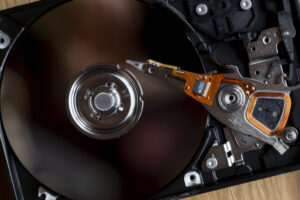The Rising Importance of Secure Data Disposal
In an increasingly digital world, data is the lifeblood of both personal and professional ecosystems. From financial institutions to small businesses, and from healthcare providers to remote workers, data flows through every operation and interaction. But what happens when that data is no longer needed? Secure data disposal becomes crucial. Without it, sensitive information can be exposed, stolen, or misused, leading to identity theft, financial loss, and reputational damage.
Secure data disposal isn’t just about deleting files or formatting drives. It’s a rigorous process designed to ensure that all traces of information are irretrievably removed. As technology advances and data storage becomes more complex, the need for secure data destruction and responsible data disposal services has never been greater.
The Risks of Inadequate Data Disposal
Improper data disposal can create serious vulnerabilities for businesses and individuals alike. Whether it’s an old laptop tossed in the trash or a decommissioned server sent to a recycler without proper data wiping, the potential for data breaches is real. Sensitive data—such as Social Security numbers, customer records, employee details, and proprietary information—can be recovered with basic tools if not properly destroyed.
Common Consequences of Poor Data Disposal:
The consequences of poor data disposal can be severe. Identity theft is one of the most common outcomes when personal data is exposed. Corporate espionage can occur when trade secrets or confidential strategies are leaked. Regulatory fines may be levied against organizations that fail to comply with data protection standards. Lastly, reputational harm can erode the trust customers place in a business, leading to long-term financial consequences.
These risks underscore the critical role of secure data disposal in any data lifecycle strategy.
Methods of Secure Data Destruction
There are several proven methods for secure data destruction, each suited to different needs and device types.
Physical Destruction
This includes shredding, crushing, or drilling hard drives and storage media. It is a reliable way to ensure that data cannot be reconstructed.
Digital Data Wiping
Using specialized software, this method overwrites storage media multiple times to ensure that the original data cannot be recovered. Ideal for devices that will be reused or resold.
Each of these secure data disposal techniques can be used individually or in combination, depending on the level of sensitivity and the desired outcome.
Industry-Specific Use Cases for Data Disposal Services
Healthcare
Hospitals and clinics handle vast amounts of Protected Health Information (PHI). Secure data disposal is essential to prevent breaches that could violate HIPAA standards and compromise patient confidentiality.
Finance
Banks, insurance firms, and financial planners store client account numbers, transaction records, and tax documents. Secure data destruction ensures compliance with data protection laws and safeguards customer trust.
Education
Schools and universities must dispose of student records, research data, and administrative files. A data breach could lead to unauthorized access to sensitive academic and personal information.
Legal Services
Law firms deal with case files, legal contracts, and sensitive communications. Improper disposal could violate attorney-client privilege and lead to serious consequences.
The EACR Inc. Approach to Secure Data Disposal
EACR Inc. is a nationwide leader in secure electronics recycling and data disposal solutions. With decades of experience in handling sensitive information, EACR uses licensed and compliant processes to ensure data is permanently destroyed.
Why Choose EACR Inc.?
EACR Inc. brings licensed expertise in electronics and data destruction. They offer both on-site and off-site services tailored to specific business needs. Their solutions include end-to-end tracking for audit trails and peace of mind. In addition, they maintain environmentally responsible practices that align with sustainability goals.
From data wiping to hardware shredding, EACR Inc. offers comprehensive data disposal services that meet the highest security standards.
Best Practices for Secure Data Disposal
To maintain a high standard of data protection, businesses and individuals should perform regular audits of all data storage devices. It’s also important to create a data disposal policy that defines when and how data should be destroyed. Staff should be trained on the importance of data disposal and the proper procedures to follow. Using multi-step methods can add an extra layer of security, especially when dealing with highly sensitive data. Finally, partnering with a licensed data disposal provider like EACR Inc. ensures peace of mind.
Secure data disposal is not just a one-time task; it’s an ongoing responsibility that should be built into every organization’s operational protocol.
Conclusion
In today’s digital age, secure data disposal is more than a security measure—it’s a necessity. With the constant threat of cybercrime and growing data privacy concerns, both businesses and individuals must take data destruction seriously. Whether through physical destruction, digital wiping, or a combination of methods, secure data disposal protects valuable information and ensures peace of mind.
Working with a trusted partner like EACR Inc. ensures that every step of the disposal process is handled with care, compliance, and environmental responsibility. When it comes to protecting what matters most, secure data disposal is the first and last line of defense.





